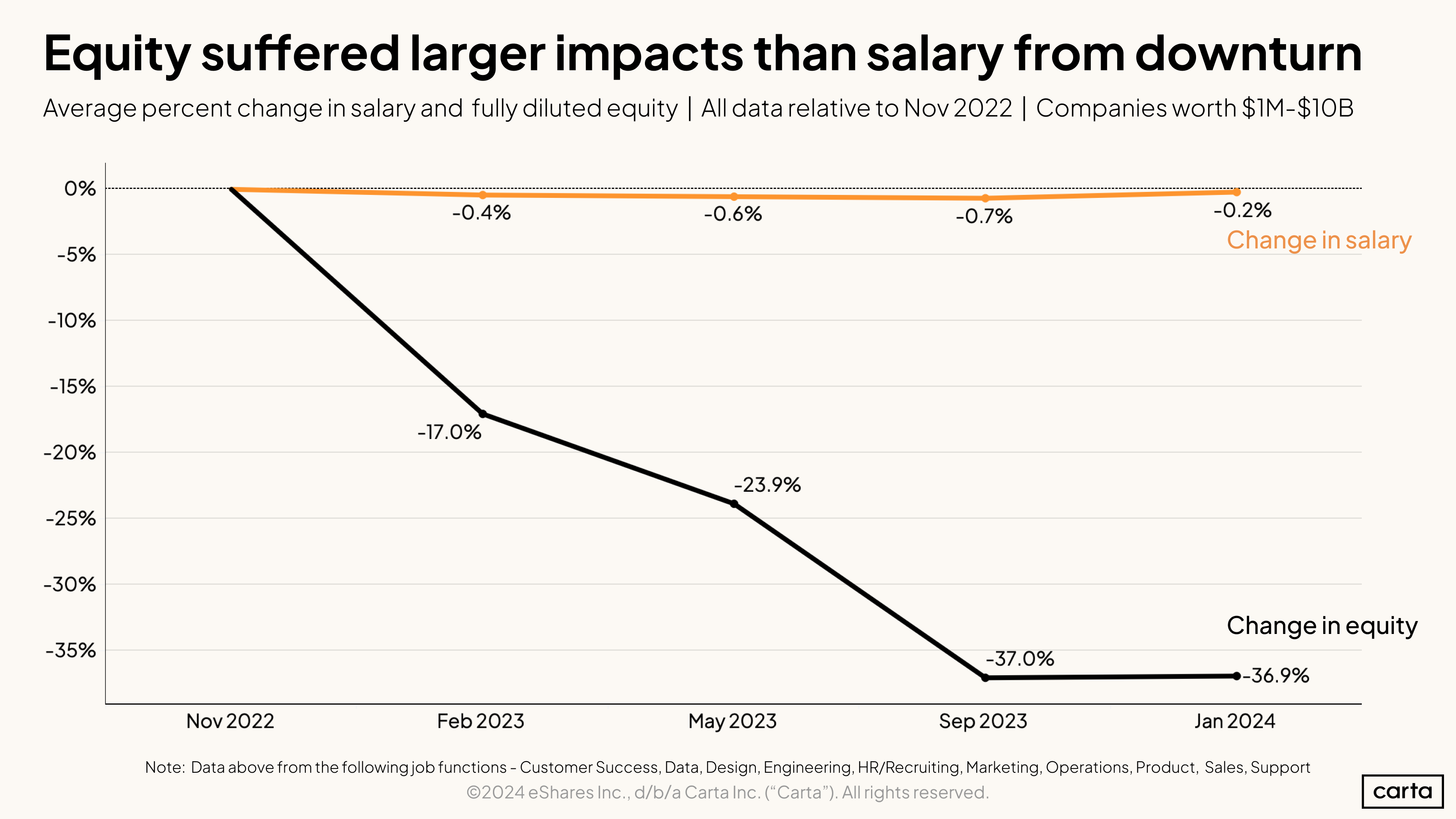Carta Blog
Explore by topic
- Capdesk
- Vauban
- Carta 2024 Innovators Summit
- Policy Newsletter
- How We Work
- Educational Essentials
- Policy
- Compensation
- Product Education
- Equity
- Compliance
- Founder Education
- Trends
- Fund Administration
- Fundraising Files
- Announcements
- Liquidity
- Limited Liability Companies
- Initial Public Offerings
- Venture Capital
- Late-Stage Private Companies
- Use Cases
- From Our CEO
- Startup Fundraising
- Carta Launch
- Building Carta
- Featured
- Markets
- Issue Briefs
- Equity Education
- 409A Valuations
- Partner Stories
- Podcasts
- Investors
- CTC
- Carta
- Partner Newsletter
- Private Companies
- Data & Research
- Employee Resource Center
Latest

For founders
Running a company is hard. Here, find downloadable resources and articles we’ve created to make your job a little easier.

For investors
Whether you’re a small venture firm raising your first fund or a veteran of the venture capital space, Carta has interviews, articles, videos, research, and more to help you achieve your goals.

Learn about equity
Equity is confusing. We’re here to help. Our Equity Resource Center will help you understand equity basics, how to navigate your equity offer, what to expect when exercising, and more.
Want to see how Carta works?







